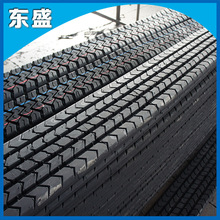Throughout the past month, I’ve taken advantage of the liberty afforded by my (and others’) vaccination to fully explore my home state of Michigan. I did not decamp to my parents’ suburban paradise when the pandemic first hit, electing instead to ride out the horrifying New York City wave. I have no regrets about that choice, even as I understand why so many of my peers did the opposite—but after months of watching Brooklyn transform around me, as businesses shuttered and streets opened up and residents came together in mutual aid and solidarity and protest, I wondered what it was like to see my older homes similarly shift in real time. And I knew Michigan was shifting, even if that shift was in a different direction: I talked to friends who lived down the street from the state Capitol as it was raided by armed Trump supporters; I watched videos featuring faces of people I’d met before chanting “stop the count”; I listened to one of my parent’s saddening tales of the COVID wards in which they worked. In the end, once I had the ability, I needed to go home to see it for myself.
It wasn’t just concern about COVID or politics that animated this impulse. As someone who thinks about climate change a lot, I’ve been thinking about my future during these somewhat existential months, and what the concept of “home” can even mean anymore. I’ve lived in NYC for nearly four years now, and I’ve savored every bit of it. But whenever someone asks me whether I’d like to live here “forever,” I hesitate—not because I wouldn’t enjoy it, but because I probably won’t be able to. Like many others of my generation, I don’t own property and am unlikely to anytime soon. And while so far, I’ve lived in areas of Queens and Brooklyn less susceptible to the extremities of freak events like Superstorm Sandy, it’s hard to shake the suspicion that very little of New York will be safe in the coming years—you just need look at the most recent reports of the oppressive heat, the stated need to conserve energy in the face of potential blackouts, and the flooded subway stations to see what’s already well on the way.
Advertisement Advertisement Advertisement AdvertisementWith that understanding, I haven’t been able to help formulating contingency plans. The Midwest, and specifically the beautiful northern regions and dense middle cities of Michigan, always seemed like a good fallback prospect: generally temperate climes even in the midst of erratic weather, a lack of frequent coastal earthquakes and Great Plains storms and Western droughts, and my own familiarity with the broader region, from Chicago to Michigan City. Researchers have already predicted Michigan will become a domestic climate haven for Americans displaced by climate effects in the coming decades. Which is why my answer to the question “Do you want to live in NYC forever?” has long been “As long as I’m able to,” and my answer to the question “Would you ever want to move back to Michigan?” has become “When I’m inevitably forced to.”
AdvertisementBut coming back to Michigan in the summer of 2021 has forced me to rethink even this admittedly vague backup plan.
The state is still beautiful, lush with greenery and cold water and ample public and private space in its bustling towns and cities. It finally has a solid gubernatorial administration at the helm (the second woman we’ve had in lead office since the 2000s), along with legal weed and overhauled political institutions. And it’s changed so much for the better, politically and culturally, throughout the decades I’ve lived here, as the post-9/11 bigotry I experienced as a brown kid somewhat lessened—small conservative towns like Holland and Manistee and Meridian Charter Township are far more accepting of the LGBTQ community and minorities than I’d ever seen them be before.
Advertisement AdvertisementBut in spite of these positive shifts, my recent weeks of biking and driving across the state have left me with a different perception, a sinking feeling of what life is like in the merciless Anthropocene. Reports of extreme weather have been a fixture of this early summer, including here. Heavy rain led to floods that drowned cars in Dearborn and Detroit, shutting down power for thousands while wrecking the wastewater infrastructure of still more cities, as well as the water purification systems and home plumbing. (Speaking of water: Flint’s crisis may be considered “over,” but the systems that allowed it to happen are still in place, and the trauma lingers for its residents.) The same heat waves that have seared both East and West visited the Midwest too (and, incidentally, gave my supposedly protected brown skin its first sunburn in decades); more pummeling, dayslong rain storms followed shortly after, causing more than a hundred thousand Detroiters to lose power. The weather is ruining farmers’ livelihood, and the cultivators of Traverse City’s famous cherries told President Joe Biden as much when he came through the neighborhood two weeks ago. Areas like Ingham County that would rarely see any twisters were put under multiple tornado watches and warnings while other counties were devastated by the storms and put under a state of emergency. Hordes of mosquitoes have emerged within these drenched areas, potentially carrying horrifying diseases. The inevitably disastrous Line 5 oil and natural gas pipeline is likely set to begin construction soon, despite the protests of both citizens and Gov. Gretchen Whitmer.
Advertisement Advertisement Advertisement AdvertisementPopular in News & Politics
- A Great American Con Led to the Mess on College Campuses. Everyone Fell for It—Again.
- The Trump Defense Made Hope Hicks Cry. The Prosecution Got What It Wanted.
- There’s One Part of Brittney Griner’s Account of Life in Russian Prison That Really Stands Out
- Only One Thing Will End the Protests—and Relieve Joe Biden of This Gigantic Headache
For what it’s worth, Whitmer’s invigorating campaign promise to “fix the damn roads” has gotten a start but failed to fully materialize while the long-brittle asphalt continues to crumble and crack to an unsafe, unsustainable level across the state (and keeps sustaining water and heat damage). On these potholed roads, I’ve driven past closed businesses and desolate lots spaced far apart from other vestiges of humanity; I’ve then parked my car in a decaying lot to go strolling along the steadily winnowing Great Lakes. And I do need that car to get around here, since the state’s public transit is so weak—Detroit’s is often recognized as the worst in the country—though there have gracefully been some promising developments in bike infrastructure (though this is not as much progress as there could be). After all, my home state still identifies with the heavy-polluting automobile industry that gave Michigan its midcentury booms—even as both have declined.
AdvertisementWhat has worried me about the Michigan I’ve returned to are the signs it’s already struggling to keep up with the needs of the people who already live there. We could barely handle the past month of relentless weather disaster, much less a freak COVID resurgence—so what makes Michiganders think we’re anywhere near ready for an influx of out-of-towners seeking climate refuge? (I guess we’ll be ready for a certain kind of such a person—the sleek luxury housing being built out in my college town make me feel sure of that, anyway.)
AdvertisementBut what the past month has done is readjust the already tenuous answer that I give the old-fashioned and well-meaning adults in my life who often ask me what my “long-term plan” is. It feels harder to give the answer I had gotten used to, because when I gave that one, I was thinking of the Michigan of my youth, not the Michigan of the present or whatever the Michigan of the future will be. There’s a similarity here to the feeling I had when I realized COVID would not just be a New York City tragedy—that it would eventually make itself known everywhere, and I would be able to commiserate with my loved ones about what it was like, even though I couldn’t do much to stop it. Climate change is the same—it will make its way everywhere, eventually. And so it feels impossible now to think ahead; the rickety future bequeathed to my generation and those coming is far too frightening to be managed by planning—a lesson this environmental catastrophe–fueled pandemic has already reenforced for us. Perhaps Thomas Wolfe had it right nearly a century ago when he warned us that you can’t go home again—and you certainly can’t expect it to still be the same if you try.
Tweet Share Share Comment









